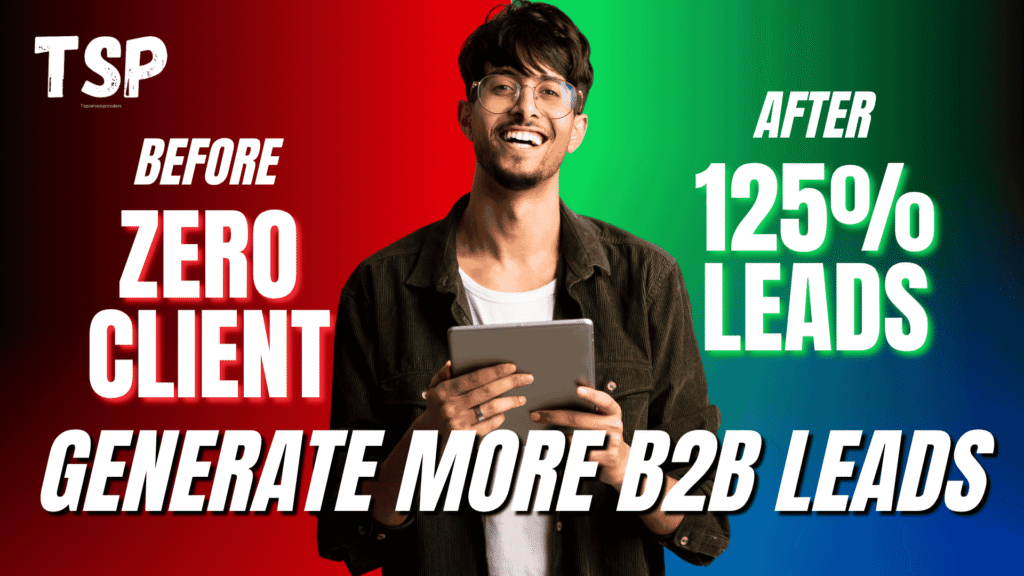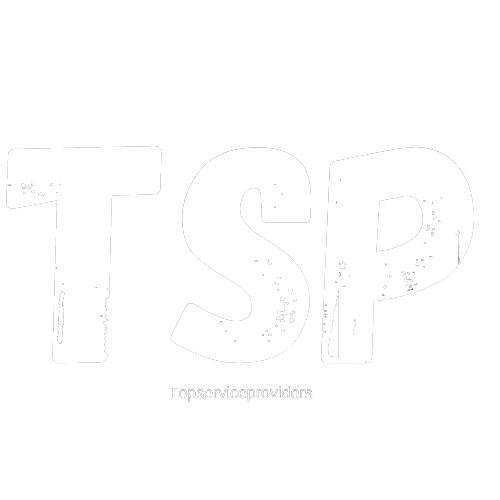5 Ways to Generate More B2B Leads: B2B Lead Generation Guide

B2B Lead Generation Guide.In a digital-first world, businesses that thrive are those with a steady stream of high-quality B2B leads. But generating b2b leads isn’t just about gathering names; it’s about reaching the right prospect, at the right time, with the right message. At TSP, we believe in building meaningful connections and transforming interest into action. So if you’re looking for 5 ways to generate leads that convert, this guide offers proven, smart, and scalable strategies.
What Is Lead Generation and Why Does It Matter?
Lead generation is the process of identifying and attracting potential customers who show interest in your product or service. For b2b companies, this means creating meaningful touchpoints with decision-makers, influencers, and purchasers across the buying funnel. Done right, lead generation feeds your sales team with high-quality leads and empowers your marketing teams to drive measurable ROI.
But modern lead generation strategies aren’t just about blasting messages. They require personalization, tools like crm systems, and a deep understanding of your target audience. TSP helps b2b businesses cut through the noise and focus on effective lead generation strategies that actually convert.
How Can LinkedIn Help Improve Your B2B Lead Generation?
LinkedIn has emerged as a goldmine for b2b lead generation, and for good reason. It’s where your prospect goes to connect, learn, and engage with industry peers, making it the perfect platform for lead gen outreach.
Personalize Your Outreach on LinkedIn
A key to success on LinkedIn is the ability to personalize your messaging. Generic connection requests and pitch-heavy messages rarely work. Instead, research each prospect, mention mutual connections or shared interests, and personalize your outreach to show that you genuinely understand their pain point.
Use Case Studies and Testimonials
LinkedIn is also a great place to share case studies that demonstrate success with clients in similar industries. When prospects see quantifiable results and how you’ve solved common pain points, they’re more likely to respond and engage.
Automate Thoughtfully
While automation tools can help scale your efforts, it’s important to balance them with a human touch. Use AI-driven solutions to segment lists, but let your sales reps write the actual messages. This increases your average response rate and builds authentic relationships.
What Makes a Landing Page Convert Better Leads?
A landing page is your digital salesperson. It’s where your potential leads make the decision to engage or bounce. That means every landing page must be optimized for conversion.
Use a Strong Lead Magnet
Offering a lead magnet like a whitepaper, eBook, or industry report encourages visitors to share their contact information. But your offer must be specific, relevant, and aligned with your prospect’s pain point.
Streamline the Process
Short forms outperform long ones. Ask only for essential information like name, email, and company size. The goal is to streamline the conversion process, allowing prospects to complete the form without friction.
Optimize for Mobile and SEO
Your landing page should be fast-loading, mobile-friendly, and built using seo strategies. Use analytics to test different formats and calls-to-action (CTAs), and refine based on what improves your conversion rates.
Why Should You Invest in Account-Based Marketing?
Account-based marketing (ABM) is one of the most effective b2b lead strategies because it targets specific, high-value prospects with tailored messaging. Instead of casting a wide net, ABM zeroes in on your ideal customer profile.
Personalization Is Key
ABM starts with personalization. Build marketing campaigns that address the exact pain points of each prospect. Use case studies, product demos, and emails tailored to their industry, role, and challenges.
Sync Your Sales and Marketing Teams
In ABM, your sales team and marketing teams must work together. When they sync, your sales tools, crm, and outreach strategies become more focused and aligned.
Measure and Refine
Use tools like CRM and Google Analytics to measure conversion metrics and identify bottlenecks. Then refine your messaging and targeting for better performance.
How Does Content Marketing Support the Lead Generation Process?
Content marketing is the engine that fuels your lead generation efforts. When done well, it attracts, educates, and engages b2b leads throughout the sales funnel.
Map Content to the Funnel
Not all prospects are ready to buy. You need a mix of content that moves them from awareness to conversion. Blog posts for top-of-funnel, case studies for middle-funnel, and product demos or free trials for bottom-funnel.
Repurpose Into Webinars and Whitepapers
Turn blog content into webinars, whitepapers, or gated guides. These serve as excellent lead magnets for collecting sales leads and building your email marketing list.
Focus on Content Quality Over Quantity
Your content quality matters more than volume. Each piece should address a pain point, offer a solution, and include a clear CTA that moves the reader closer to conversion.
How to Automate and Streamline B2B Lead Generation?
Automation doesn’t replace humans, it empowers them. When used correctly, automation tools streamline your lead generation process, freeing your sales team to focus on nurturing high-quality leads.
Automate Email Outreach
Use email outreach tools to send personalized sequences to segmented lists. You can automate follow-ups, track engagement, and A/B test messaging for better conversion rates.
Score and Prioritize Your Leads
Implement lead scoring to qualify and prioritize potential leads based on behavior, engagement, and fit. This ensures your sales representatives spend time on the most valuable leads.
Use AI to Identify Intent Signals
AI-driven analytics can reveal when a prospect is showing intent by visiting your pricing page, opening multiple emails, or watching product videos. This helps you reach out when they’re most likely ready to buy.
What Are the Most Important Things to Remember?
To build a lead generation machine that consistently drives high-quality B2B leads, keep these essentials in mind:
- Lead generation starts with understanding your target audience and their pain points.
- Personalize every touchpoint from LinkedIn messages to landing pages.
- Use platforms like LinkedIn for strategic outreach and relationship-building.
- Optimize every landing page for conversion using clear CTAs and minimal friction.
- Invest in account-based marketing to connect with high-value decision-makers.
- Leverage content marketing and case studies to build trust and authority.
- Automate the repetitive work, but keep the human touch in messaging.
- Continuously refine, test, and optimize your lead generation strategy using real-time analytics.
At TSP, we connect you with the tools, talent, and proven strategies to generate more B2B leads and elevate your growth. Whether you’re a small team or a growing enterprise, it’s time to stop chasing leads and start converting them.
Ready to turn your outreach into opportunities? Let TSP help you build your next breakthrough.

